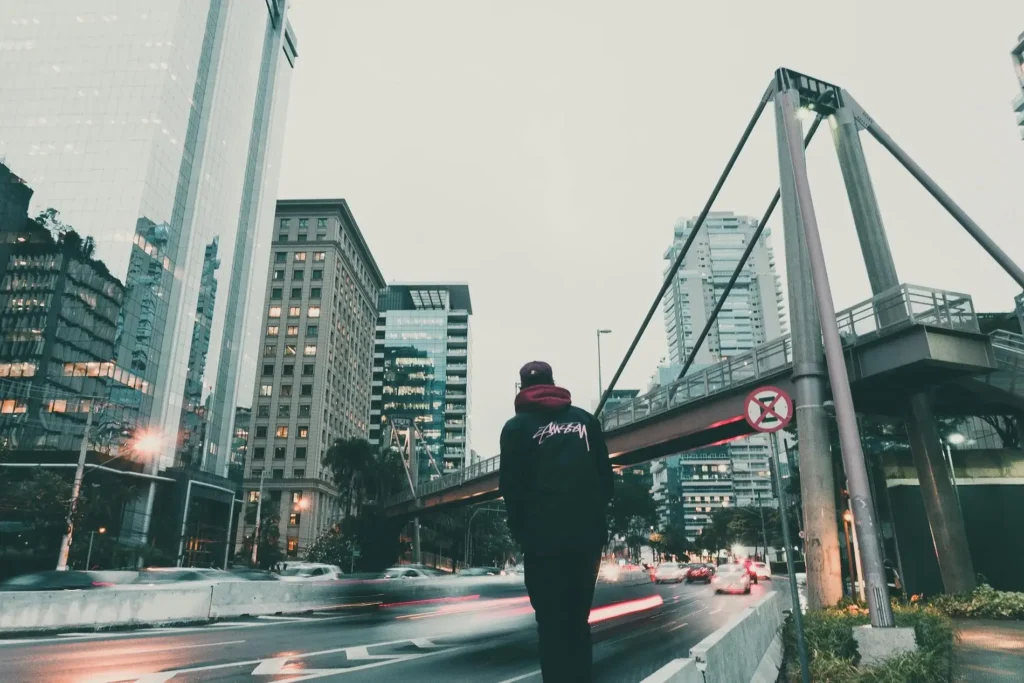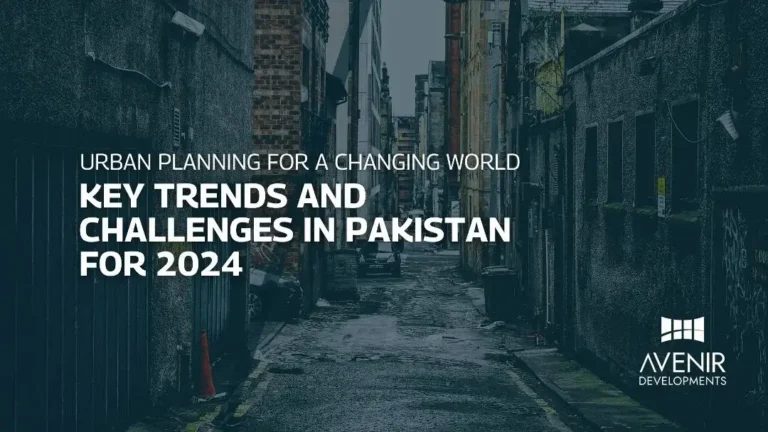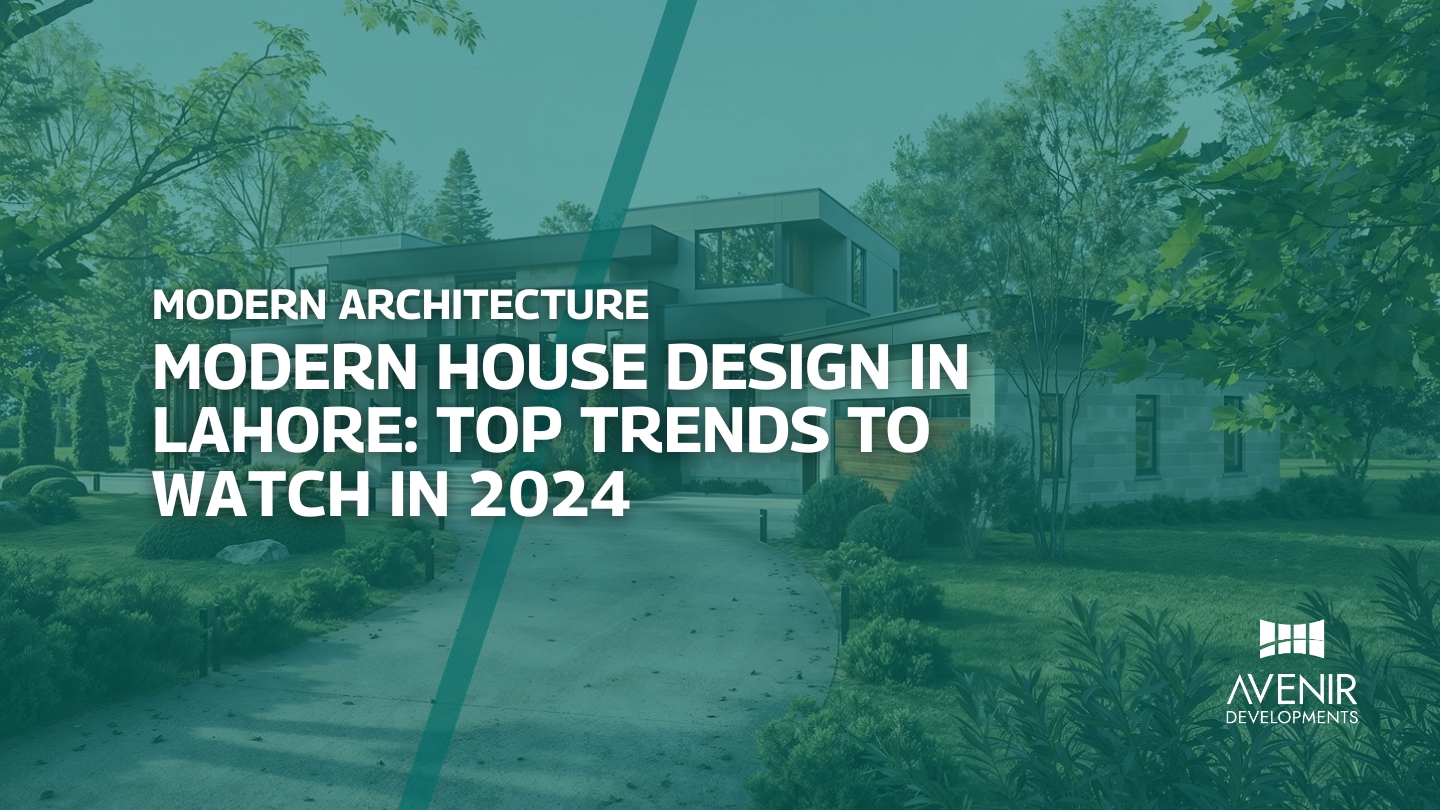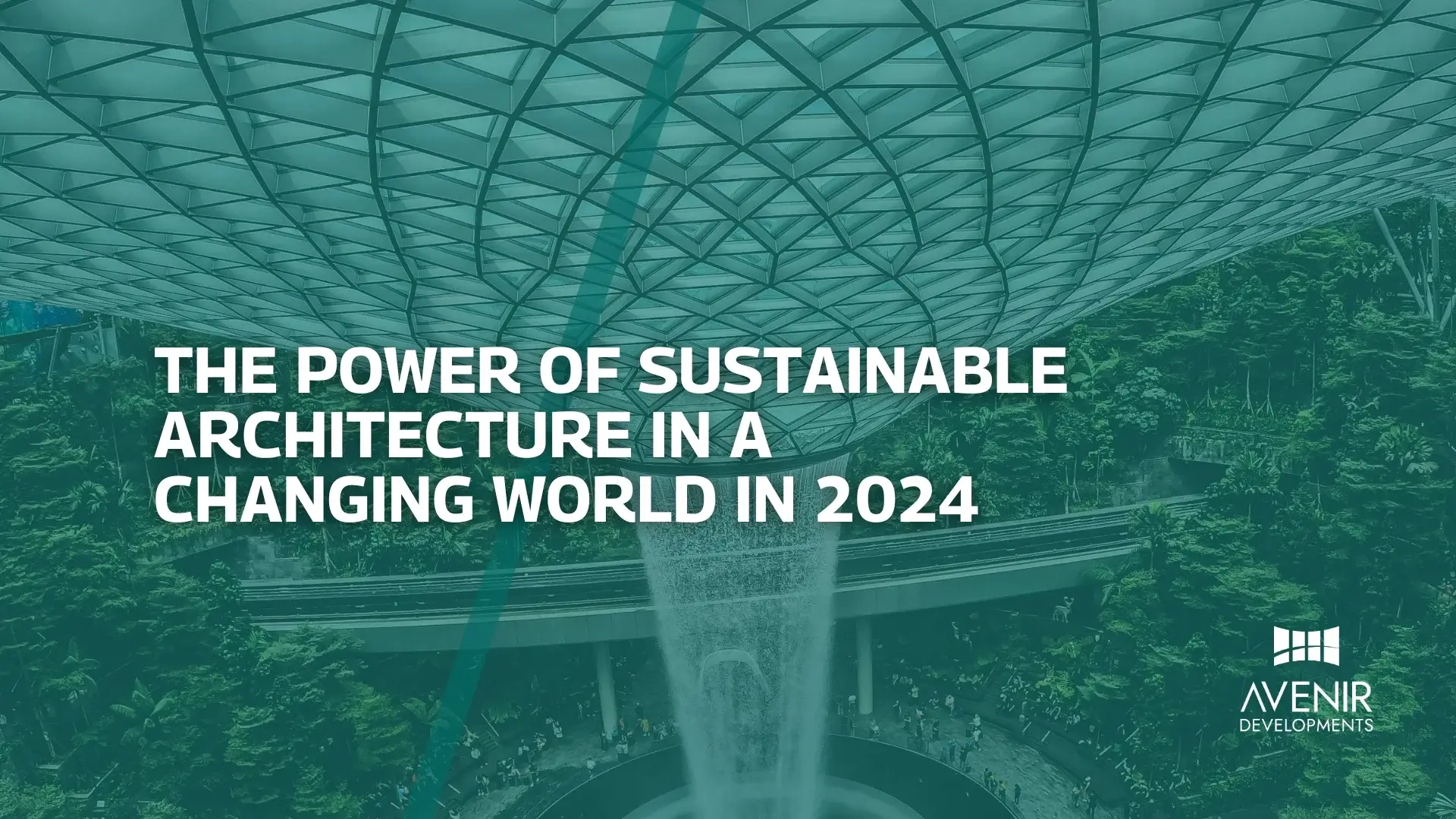Urban planning, the art and science of shaping cities, has become increasingly crucial in a world undergoing rapid urbanization. Pakistan, with its burgeoning cities and complex socio-economic landscape, presents a unique set of challenges and opportunities for urban planners. As an experienced architect, interior designer, and custom home builder with over two decades in the industry, I’ve witnessed firsthand the transformative power of well-planned urban environments. In this comprehensive article, we’ll delve into the key trends and challenges shaping urban planning in Pakistan, exploring strategies for creating sustainable, resilient, and equitable cities.

Understanding Urban Planning in Pakistan
Urban planning in Pakistan has evolved significantly over the years, influenced by historical, cultural, and economic factors. The country’s rapid urbanization, driven by industrialization and migration, has led to a surge in urban populations, placing immense pressure on existing infrastructure and resources. Effective urban planning is essential to manage this growth sustainably and ensure the well-being of its citizens.
Key Definitions and Concepts:
- Urbanization: The process of becoming a city or taking on characteristics of a city, such as a high population density and diverse economic activities.
- Sustainable Urban Development: Creating cities that meet the needs of the present without compromising the ability of future generations to meet their own needs.
- Smart Cities: Cities that utilize technology to improve efficiency, sustainability, and quality of life for residents.
- Inclusive Cities: Cities that promote social equity, inclusivity, and participation for all residents.
Historical Context and Evolution:
Pakistan’s urban planning history dates back to the colonial era, with influences from British urban planning principles. However, the country’s post-independence development has been characterized by rapid and often unplanned growth, leading to various urban challenges. Recent years have witnessed a growing emphasis on sustainable urban development and the adoption of modern planning approaches.
Importance of Urban Planning in Pakistan:
Effective urban planning is crucial for Pakistan’s sustainable development. It helps address challenges such as:
- Traffic congestion: Improving transportation infrastructure and promoting alternative modes of transport.
- Housing affordability: Developing affordable housing solutions to meet the needs of the growing population.
- Environmental degradation: Protecting natural resources, reducing pollution, and promoting green spaces.
- Social inequality: Creating inclusive cities that provide equal opportunities for all.
- Economic development: Fostering economic growth and job creation through well-planned urban areas.
Current Trends and Developments in Urban Planning
Pakistan is witnessing several significant trends in urban planning, reflecting the country’s evolving needs and aspirations.
1. Sustainable Urban Development:
- Green Building: Promoting the construction of environmentally friendly buildings that reduce energy consumption and minimize their impact on the environment.
- Renewable Energy: Integrating renewable energy sources into urban infrastructure to reduce dependence on fossil fuels.
- Smart Cities: Implementing technology-driven solutions to improve urban services, reduce congestion, and enhance sustainability.
2. Affordable Housing:
- Public-Private Partnerships: Collaborating with private developers to provide affordable housing options.
- Urban Renewal: Revitalizing existing urban areas to create affordable housing opportunities.
- Community-Based Housing: Empowering communities to develop their own affordable housing solutions.
3. Urban Transportation:
- Public Transport: Expanding and improving public transportation systems to reduce reliance on private vehicles.
- Non-Motorized Transport: Promoting walking and cycling as sustainable modes of transportation.
- Traffic Management: Implementing traffic management strategies to reduce congestion and improve traffic flow.
4. Community Development:
- Participatory Planning: Involving communities in the planning process to ensure their needs and preferences are reflected.
- Social Inclusion: Promoting social equity and inclusivity in urban development.
- Cultural Preservation: Protecting and promoting cultural heritage in urban areas.
5. Government Initiatives:
- Urban Planning Policies: Developing and implementing comprehensive urban planning policies and regulations.
- Investment in Infrastructure: Investing in essential infrastructure, such as roads, water supply, and sanitation systems.
- International Cooperation: Collaborating with international organizations and experts to learn from best practices and exchange knowledge.
Challenges and Opportunities
Urban planning in Pakistan faces several challenges, including:
- Rapid Urbanization: The rapid growth of cities puts immense pressure on infrastructure and resources.
- Financial Constraints: Limited resources and funding can hinder the implementation of urban planning projects.
- Land Use Conflicts: Competing land use demands can create conflicts and hinder development.
- Governance Issues: Weak governance and corruption can impede effective urban planning.
- Environmental Challenges: Climate change, pollution, and resource depletion pose significant threats to urban sustainability.
Despite these challenges, Pakistan also presents numerous opportunities for urban planning:
- Growing Economy: The country’s growing economy offers potential for investment in urban development.
- Young Population: A large and young population can be a source of innovation and energy.
- International Collaboration: Partnerships with international organizations can provide technical assistance and financial support.
- Technological Advancements: New technologies can be leveraged to address urban challenges and improve sustainability.
Expert Tips and Advice
Based on my experience in architecture, interior design, and urban planning, I offer the following tips for effective urban development in Pakistan:
- Holistic Approach: Adopt a holistic approach that considers economic, social, and environmental factors.
- Community Engagement: Involve communities in the planning process to ensure their needs are met.
- Data-Driven Decision Making: Use data and research to inform planning decisions.
- Long-Term Vision: Develop long-term plans that consider future trends and challenges.
- Innovation and Experimentation: Be open to innovative solutions and experiment with new approaches.
- Collaboration: Foster collaboration among government agencies, private sector, and civil society organizations.
- Sustainability: Prioritize sustainable development to protect the environment and ensure long-term viability.
Urban planning plays a vital role in shaping the future of Pakistan’s cities. By addressing the key trends and challenges, and by adopting innovative and sustainable approaches, Pakistan can create vibrant, resilient, and equitable urban environments. Through effective planning, collaboration, and community engagement, Pakistan can build cities that are not only functional but also enjoyable places to live, work, and play.
At Avenir Developments, we are committed to contributing to the sustainable development of Pakistan’s cities. If you are looking for expert architectural, interior design, or custom home building services, please contact us at +923001101103 or visit our website. Our team of experienced professionals can help you create sustainable, functional, and beautiful urban spaces.
Frequently Asked Questions (FAQs)
Q1: What is the role of urban planners in Pakistan?
A: Urban planners in Pakistan play a crucial role in shaping the development of cities and towns. They are responsible for creating comprehensive plans that address issues such as land use, transportation, housing, infrastructure, and environmental sustainability. They work closely with government agencies, communities, and other stakeholders to ensure that urban development is sustainable, equitable, and responsive to the needs of the population.
Q2: What are the challenges faced by urban planners in Pakistan?
A: Urban planners in Pakistan face several challenges, including:
- Rapid urbanization: The rapid growth of cities puts immense pressure on infrastructure and resources.
- Financial constraints: Limited resources and funding can hinder the implementation of urban planning projects.
- Land use conflicts: Competing land use demands can create conflicts and hinder development.
- Governance issues: Weak governance and corruption can impede effective urban planning.
- Environmental challenges: Climate change, pollution, and resource depletion pose significant threats to urban sustainability.
Q3: What are the trends in urban planning in Pakistan?
A: Some of the key trends in urban planning in Pakistan include:
- Sustainable urban development: Promoting green buildings, renewable energy, and smart city initiatives.
- Affordable housing: Developing affordable housing solutions to meet the needs of the growing population.
- Urban transportation: Improving public transportation systems and promoting non-motorized transport.
- Community development: Involving communities in the planning process and promoting social inclusion.
- Government initiatives: Developing comprehensive urban planning policies and investing in infrastructure.
Q4: How can urban planning contribute to economic development in Pakistan?
A: Effective urban planning can contribute to economic development in several ways:
- Attracting investment: Well-planned cities can attract businesses and investments, creating jobs and boosting the local economy.
- Improving accessibility: Efficient transportation systems and well-connected infrastructure can enhance accessibility and facilitate economic activity.
- Creating livable environments: Cities with high quality of life and amenities can attract talent and businesses.
- Promoting tourism: Attractive and well-planned cities can be popular tourist destinations, generating revenue and creating jobs.
Q5: What is the future of urban planning in Pakistan?
A: The future of urban planning in Pakistan is promising, with a growing emphasis on sustainable development, community engagement, and technological innovation. As the country continues to urbanize, there will be a need for innovative and effective urban planning solutions to address the challenges and opportunities ahead. By adopting best practices and learning from international experiences, Pakistan can create vibrant, resilient, and equitable cities for its citizens.
Case Studies of Successful Urban Planning Projects in Pakistan
To illustrate the impact of effective urban planning in Pakistan, let’s examine some successful case studies:
1. The Lahore Development Authority (LDA) Urban Renewal Projects:
- Gulberg III: This project aimed to revitalize a dilapidated area of Lahore by improving infrastructure, creating green spaces, and promoting mixed-use development.
- Johar Town: Similar to Gulberg III, the Johar Town urban renewal project focused on infrastructure improvements, affordable housing, and community development.
2. The Islamabad Capital Territory (ICT) Master Plan:
- Green Spaces: The ICT Master Plan emphasized the preservation of green spaces and the creation of parks and recreational areas.
- Sustainable Development: The plan promoted sustainable development practices, including energy efficiency and waste management.
- Public Transportation: The plan aimed to improve public transportation infrastructure and reduce reliance on private vehicles.
3. The Karachi Metropolitan Corporation (KMC) Urban Transport Project:
- Bus Rapid Transit (BRT): The KMC implemented a BRT system to improve public transportation in Karachi, reducing traffic congestion and providing a more efficient and affordable commuting option.
- Pedestrian and Cycling Infrastructure: The project also included the development of pedestrian and cycling infrastructure to encourage active transportation.
Urban planning is a critical component of Pakistan’s sustainable development. By addressing the key trends and challenges, and by implementing effective strategies, Pakistan can create vibrant, resilient, and equitable cities. The case studies presented in this article demonstrate the positive impact of well-planned urban development on the quality of life of citizens and the overall prosperity of the country.
As we look to the future, it is imperative for Pakistan to continue investing in urban planning and adopt innovative approaches to address the challenges ahead. By working together, governments, communities, and the private sector can create a sustainable and prosperous urban future for Pakistan.
At Avenir Developments, we are committed to contributing to the sustainable development of Pakistan’s cities. If you are looking for expert architectural, interior design, or custom home building services, please contact us at +923001101103 or visit our website. Our team of experienced professionals can help you create sustainable, functional, and beautiful urban spaces.
Read More: The Importance of Urban Planning in Creating Livable Cities: Designing for People






